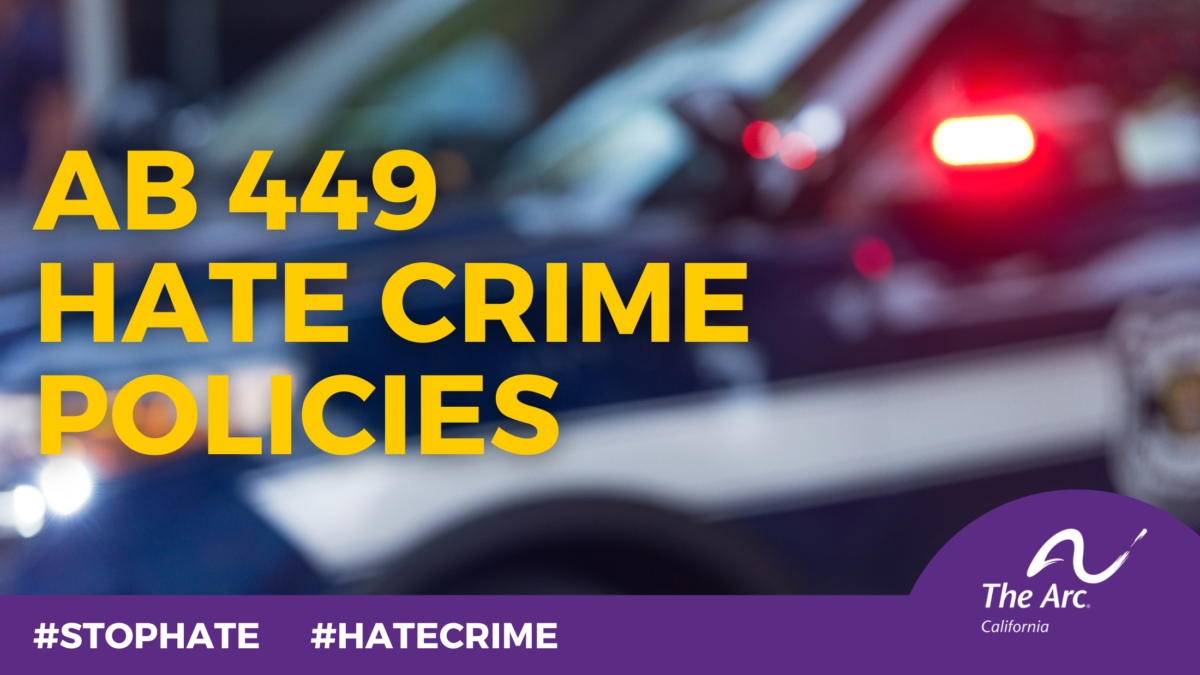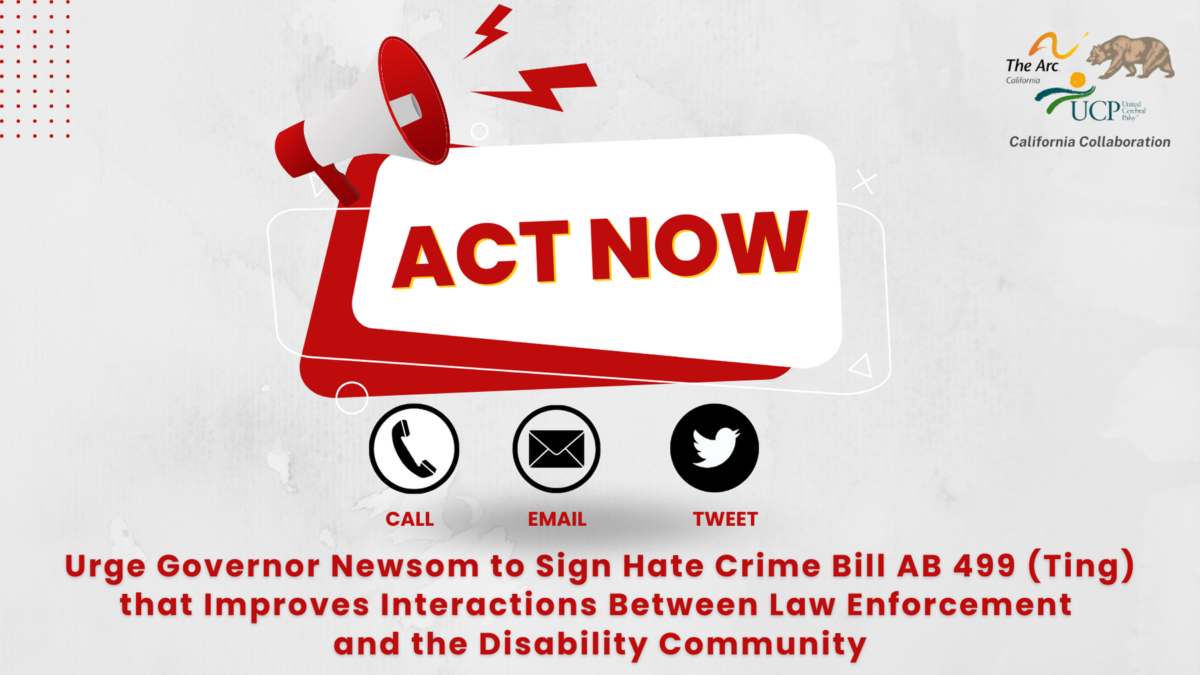By Greg deGiere, Civil Rights Advocate, The Arc of California
In a major breakthrough in the fight against anti-disability hate crimes – and all hate crimes – Attorney General Rob Bonta has made available funding to have the Department of Justice (DOJ) check law enforcement agencies’ hate crime policies guiding all officers throughout the state.
The Arc &UCP California Collaboration (The Arc-UCP) was the lead sponsor of Assembly Bill 449 of 2023 by Assemblymember Phil Ting requiring every police agency to adopt a hate crime policy guiding every officer in California. Each police agency policy must include extensive instructions about recognizing and responding to anti-disability hate crimes and additional items in the Peace Officer Standards and Training Commission’s model policy
The bill requires every police agency to submit its policy to DOJ for review – but only if adequate funds are available. Due to a deficit 2023-24 budget year, there was no way to fund the compliance checking.
Bonta informed us last week that he has located the funds to pay for checking the policies of the first 25% of the police agencies who submit their policies by January 1, 2025. The other 75% are to be submitted and checked in the next three years.
If an agency fails to submit a policy or submits one that falls short of the legal standards, the DOJ will instruct the agency to submit a compliant policy.
Police agencies with hate crime policies report about 25% more hate crimes than those with no policies, according to University of California research. And that covers any policies, not just the extensive policies that AB 449 requires.
In 2021, AB 57 (Gabriel) included an amendment we sought that recognized anti-disability hate crimes as “the invisible hate crimes.” California police agencies reported just 18 anti-disability hate crimes last year, including just six crimes motivated by bias against mental disabilities (intellectual disabilities, mental illness and dementia). And even those numbers were up from earlier years, perhaps reflecting the recent efforts to bring police attention to anti-disability hate crimes. Historically, studies show law enforcement agencies without hate-crime policies have been significantly under-reporting hate crimes, and thanks to our AB 449 last year and Bonta’s funding, we hope to improve this statistic.
AB 449, some earlier bills we supported or sponsored (some of which passed), and extensive DOJ actions were motivated by the state auditor’s report “Hate Crimes in California: Law Enforcement Has Not Adequately Identified, Reported or Responded to Hate Crimes.” The Arc-UCP led other community groups in convincing the Legislature to order the audit in 2017. It’s been a long road, and we’re not near the end yet.
If you need to report a hate crime, call 9-1-1. If your local police are unresponsive, call your area’s FBI office. The FBI asks for reports of every hate crime. For further help and support, and to answer questions about what is considered an anti-disability hate crime, visit https://www.cavshate.org/




